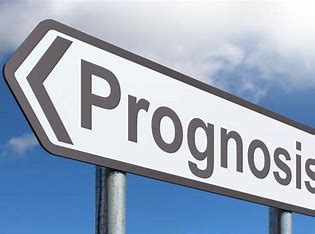Introduction
In the realm of healthcare, accurate prognosis holds immense significance. The ability to predict the course and outcome of a disease or condition not only allows medical professionals to make informed decisions but also enables patients to plan their lives accordingly. Prognosis encompasses various aspects, from estimating disease progression to determining treatment efficacy. This article delves into the concept of prognosis, explores its importance across different medical fields, and highlights advancements in prognostic techniques and their potential impact on patient care.
-
Understanding Prognosis
Prognosis refers to the prediction of the likely outcome or course of a disease or condition based on available information. It involves assessing factors such as disease progression, potential complications, response to treatment, and overall survival rates. Prognostic information is crucial for patients, their families, and healthcare providers, as it helps guide treatment decisions, manage expectations, and optimize patient care.
-
Importance of Prognosis in Healthcare
2.1. Clinical Decision Making
Prognostic information assists clinicians in formulating appropriate treatment plans. By understanding the expected course of a disease, doctors can tailor interventions to individual patients, optimizing the chances of positive outcomes. Prognosis also aids in determining the intensity and duration of therapy, allowing for personalized care and resource allocation.
2.2. Patient Empowerment and Informed Consent
Providing patients with accurate prognostic information empowers them to actively participate in their healthcare decisions. It allows individuals to plan their lives, make informed choices regarding treatment options, and prioritize goals based on their prognosis. Transparent communication between healthcare providers and patients enhances trust, shared decision-making, and patient satisfaction.
2.3. Resource Allocation and Cost-Effectiveness
Prognosis plays a pivotal role in healthcare resource allocation, particularly in situations where resources are limited. By identifying patients with a poor prognosis, medical professionals can prioritize interventions for those likely to benefit the most. This approach not only optimizes patient outcomes but also contributes to cost-effective healthcare delivery.
-
Advancements in Prognostic Techniques
3.1. Molecular and Genetic Markers
Rapid advances in molecular and genetic research have paved the way for personalized medicine and improved prognostic accuracy. Biomarkers and genetic signatures can provide crucial insights into disease behavior, treatment response, and prognosis. For example, in cancer, specific genetic alterations can help predict tumor aggressiveness and guide the selection of targeted therapies.
3.2. Artificial Intelligence and Machine Learning
Artificial intelligence (AI) and machine learning algorithms have revolutionized prognostic prediction by analyzing vast amounts of patient data and identifying patterns. These techniques can integrate various clinical, genetic, and imaging data to generate accurate prognostic models. AI-based systems can assist clinicians in making evidence-based decisions, enhancing diagnostic accuracy, and predicting treatment outcomes.
3.3. Big Data and Predictive Analytics
The advent of electronic health records and large-scale data repositories has provided researchers with unprecedented access to patient information. By leveraging big data and predictive analytics, researchers can develop powerful prognostic models. These models can harness data from diverse sources, enabling precise risk stratification, early disease detection, and individualized treatment plans.
Ethical Considerations
While prognostic information can be invaluable, ethical considerations must guide its application. Clear communication, respecting patient autonomy, and ensuring appropriate counseling are essential. Striking a balance between optimism and realism while delivering prognostic information is crucial to avoid instilling undue distress or false hope.
Future Directions and Challenges
The field of prognosis continues to evolve, driven by technological advancements and improved understanding of disease processes. However, several challenges remain. Standardization of prognostic models, data privacy concerns, and the need for validation studies are areas that warrant attention. Additionally, integrating prognostic tools seamlessly into clinical practice and educating healthcare professionals about their utilization are key steps for widespread implementation.
Conclusion
Prognosis holds immense value in healthcare, aiding clinical decision-making, empowering patients, and optimizing resource allocation. Advances in molecular markers, artificial intelligence, and big data analytics have significantly enhanced prognostic accuracy and personalized patient care. Ethical considerations and ongoing research are essential for responsible prognostic application. As medicine progresses, an improved understanding of prognosis will continue to transform healthcare, improving patient outcomes and shaping the future of medicine.

